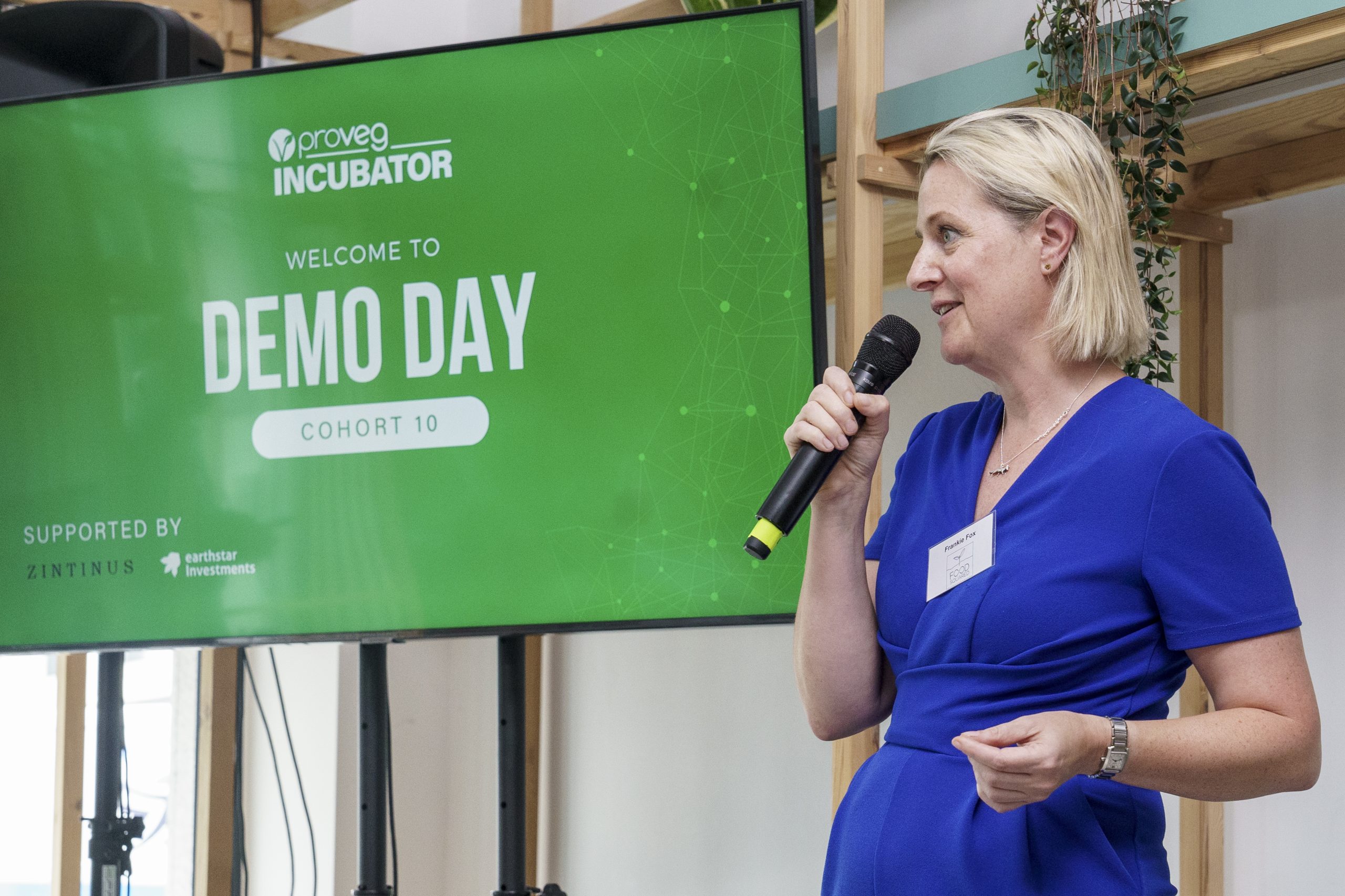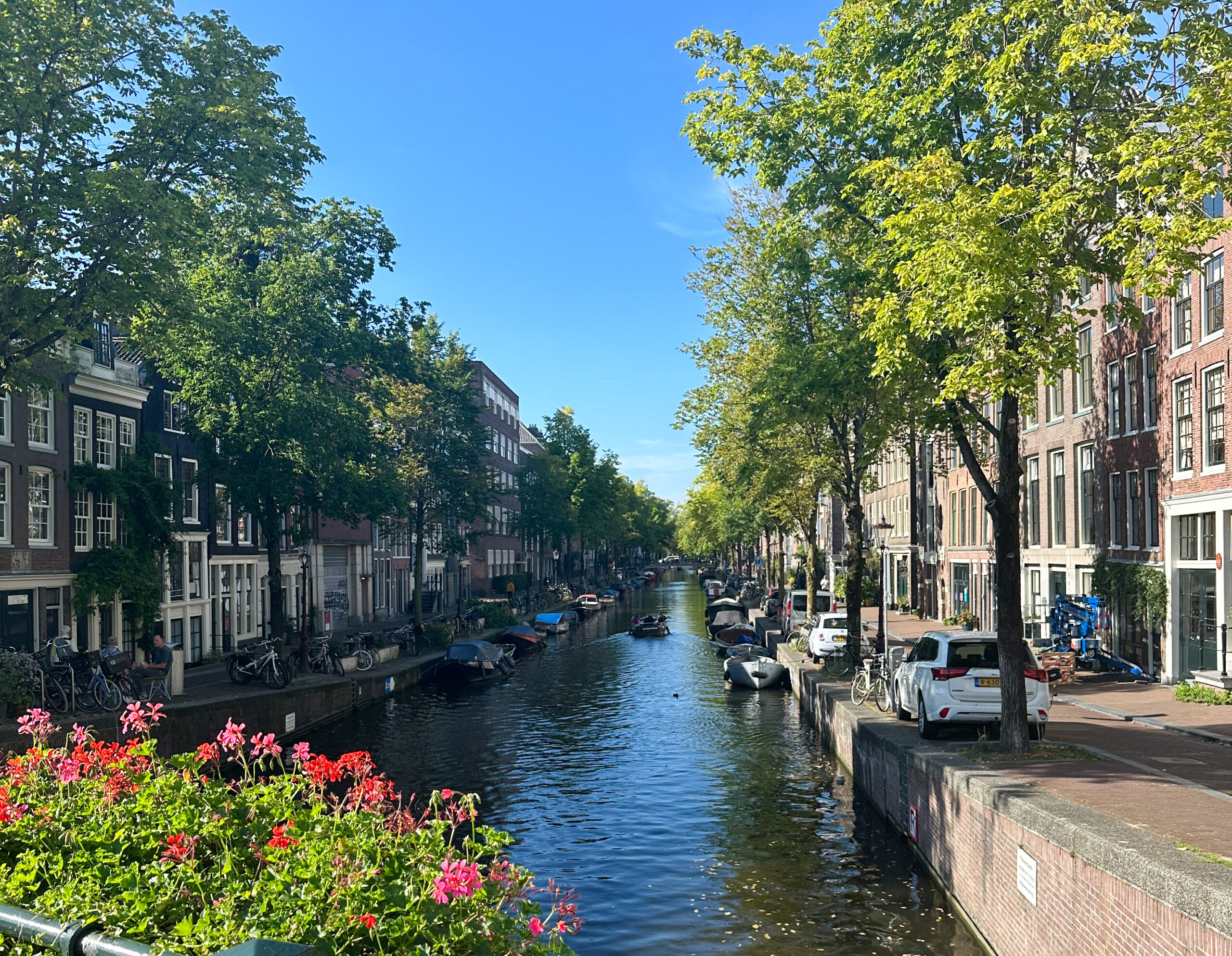The Co-Founder of Food Squared – a ProVeg Incubator Alumni – shares insights on the alternative seafood market
By Gemma Tadman, Business Communications Manager, ProVeg International
Alternative seafood is the phrase on everyone’s lips right now – amid huge start-up investments, tech innovations, and growing consumer demand. Certainly, fishless fish is a category to watch.
And it’s all very timely, too. Experts predict that the world’s oceans won’t be able to keep up with this demand, with over 90% of ‘fish stocks’ considered either over-fished or exploited close to the point of ‘unsustainability’.12
Fortunately, alt-seafood brands can provide a tasty, sustainable, and profitable solution.
To learn more about the drivers and challenges in alt-seafood, and bring you implementable knowledge for your businesses, I catch up with Frankie Fox, the Co-Founder of exciting alt-shrimp brand, Food Squared.
Food Squared, a ProVeg Incubator alumni, is making waves in the seafood industry with its innovative alt-shrimp. In our conversation, Frankie shares insights into why Food Squared chose to start with shrimp, the essential criteria for developing their product, and the target market they aim to serve. We explore strategies for generating awareness and the potential for collaboration and innovation in this exciting space.
Press play on the video above to watch the 14-minute interview. Or read the highlights below.
Starting with shrimp
Did you know that farmed shrimp is one of the least sustainable foods on Earth? My conversation with Frankie begins with the Co-Founder uncovering the ‘why’ behind Food Squared, and it’s eye-opening.
“We decided to start with farmed shrimp,” Frankie tells me, “because it is one of the most polluting foods out there – it uses the most fresh water, and it’s second only to beef on its CO2 emissions. So we couldn’t think of a better place to start.”
With alt-shrimp a whitespace in the alt-seafood category, I’m intrigued to learn more about product development. I ask Frankie about the criteria and product qualities that were most important.
“We looked at the first generation of plant-based products,” Frankie says, “and researched into a lot of the consumer feedback. The key product criteria are texture, taste, price, and label.”
Frankie explains that with alternative seafood, texture is absolutely key. Food Squared doesn’t use extrusion technology, like many plant-based brands do. Instead, they use an innovative patented technology that allows them to get a unique texture that has not previously been available to many brands.
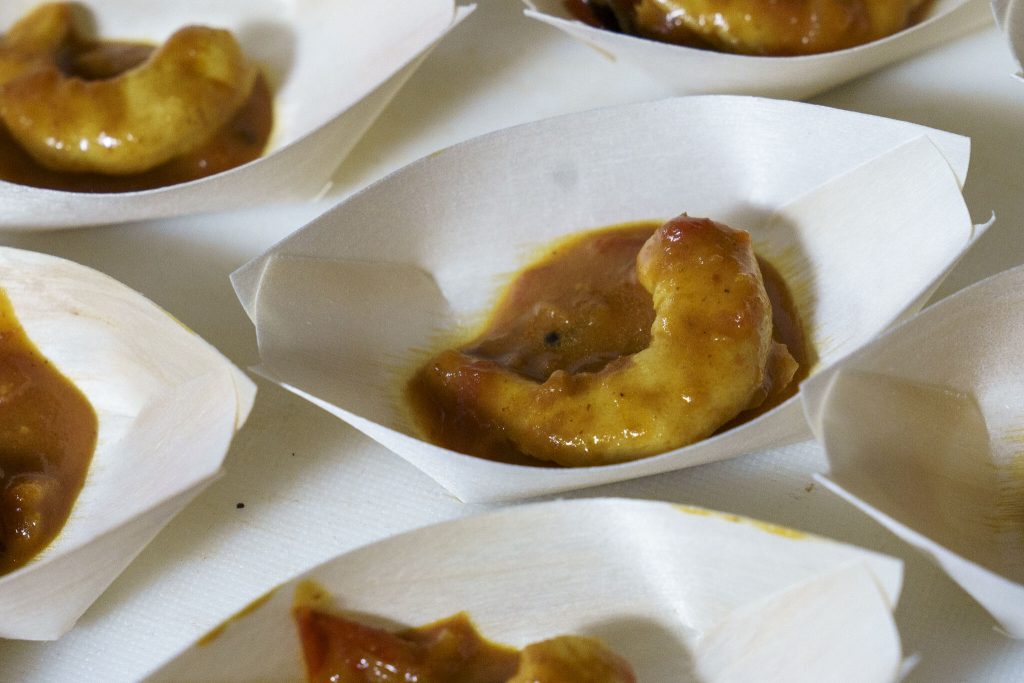
But it’s not just about the technology; when replicating fish, it’s also about the ingredients and what nutrition they provide, alongside great texture.
“For plant protein,” Frankie adds, “most people who have tried to replicate the texture of shellfish have used starches such as konjac root, which gives a great texture, but it really lacks protein. So, it’s not a healthy equivalent. We decided to work on making a great shellfish texture with plant protein, so we could keep the nutritional and protein levels up.”
Certainly, when it comes to fish products, nutrition is key, with one of the main consumer drivers being health – this motivation directly translates into alt-seafood.
Consumer awareness and acceptability
Even if you have an incredible alternative seafood product – that’s exceptional in taste, texture, and nutrition, without consumer awareness and acceptability, there will be no uptake. I ask Frankie for her thoughts on this.
“Something that’s really hit us is how little people know about farmed prawns.”
“I think if a lot more people understood the impact of the seafood they ate, especially in shellfish – if it had as much press and PR as meat and beef in particular – people would be really surprised and actively look for alternatives. Certainly, the conscious consumers would be interested in finding alternatives.”
Here, brands like Food Squared can collaborate with social media influencers, chefs, nutritionists, and environmental activists who can endorse and promote alternative seafood products in place of less sustainable conventional seafood. Their reach and credibility can significantly impact consumer perceptions.
Alt-seafood businesses can also host tasting events and cooking demonstrations at local markets, grocery stores, or food festivals. Allowing consumers to sample and experience the product firsthand can pique their interest and help them understand its taste and versatility. Foodservice collaboration is another useful tool. When people encounter these products in their favorite dining places, they are more likely to try them.
The challenge of scale
Awareness isn’t the only industry challenge: scaling up is another trial that many start-ups face. So, what needs to happen ensure that there is the right infrastructure available for growing brands?
“In the UK, looking for smaller scale pilots, appropriate facilities, and co-manufacturing partners is hard. Food is hard anyway. And if you are having to introduce something incredibly new, you’re having to work twice as hard because your infrastructure is not the same.”
“This problem exists for any startup,” Frankie continues, “but in something like alt-seafood, you’re also starting up in an industry where you’re having to work doubly hard to convince people to give you a chance to be on the shelf.”
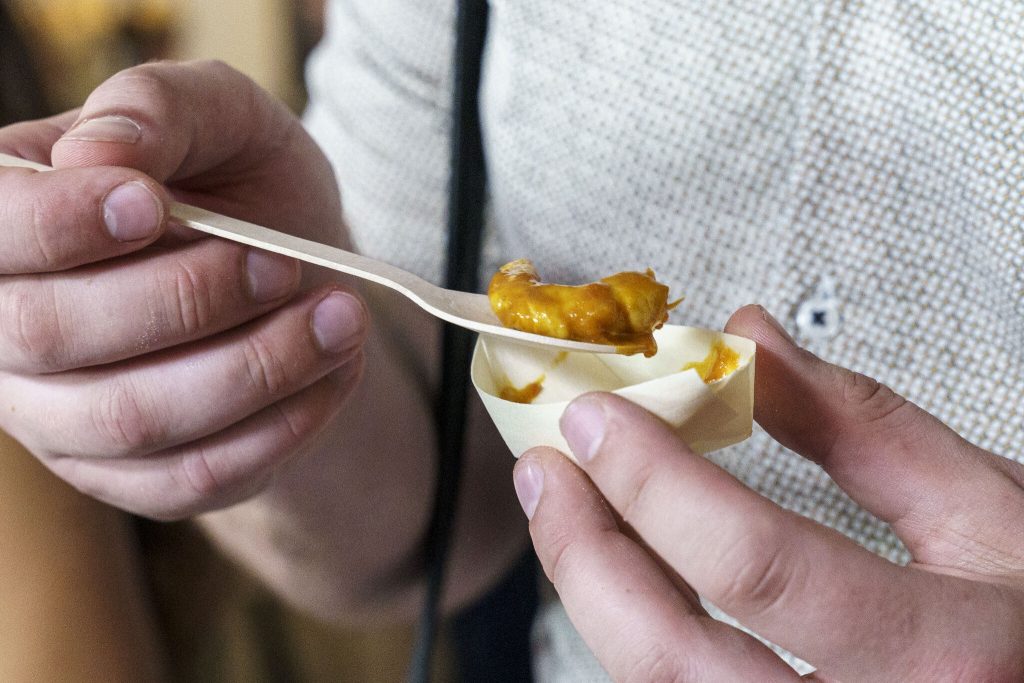
More support will always be welcome when it comes to scaling up alternative seafood, which Frankie suggests, should come from some of the bigger retailers and food service businesses.
“They certainly have plant-based pledges,” she says, “but they should also take on smaller suppliers and help to enable that. Surely, the more options for consumers, the better?”
‘High tide floats all boats’
With so much happening in the alt-seafood space, I close my conversation with Frankie by asking for her thoughts on the future of the category.
“Wow. I think this is a really exciting category – if you look at meat, you’ve got the basic meat products, like beef, pork, chicken, lamb, but if you look at seafood and shellfish, there are hundreds of different seafood species that people can choose from. There are so many more options out there.”
“It is such a wide space,” she continues, “and businesses are only scratching the surface on sustainability and innovation. There can be a lot of players – I think we should all be supporting each other because it’s a massive category with a huge opportunity. And as I say, ‘high tide floats all boats’. So, you know, the more innovation, and the more we can support innovation, the better!”
“The more awareness there is out there, the bigger the opportunity. I think there seems to be a lot of opportunity for people to innovate next to each other.”
With those final thoughts of progress, opportunity, and collaboration, I leave the conversation certain that the future of alt-seafood – and Food Squared – is as promising as the ocean is deep.
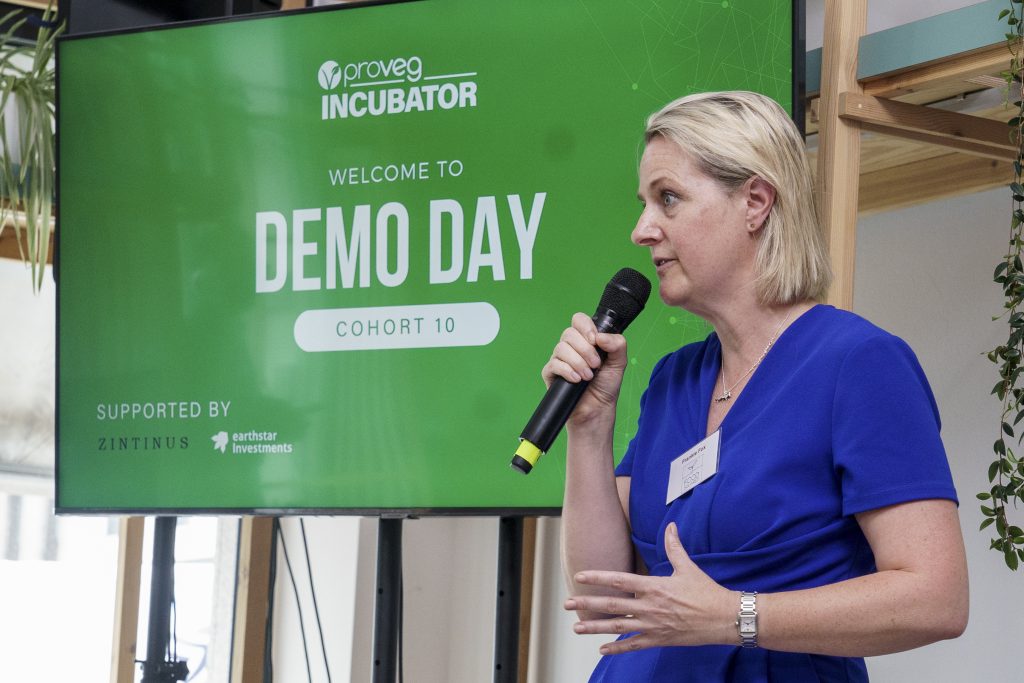
References
- FAO (2020): The State of World Fisheries and Aquaculture 2020. Sustainability in action. Rome. Available at: https://www.fao.org/3/ca9229en/ca9229en.pdf. Accessed 2023-08-24.
- Fish farming and aquaculture, (2020). ProVeg International. Available at: https://proveg.com/5-pros/animals/fish-fishing-and-fish-farming-in-aquacultures/. Accessed 2023-08-24.
